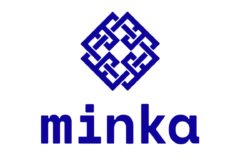Flutterwave has launched an ecommerce product in a show of ambition to expand use cases among existing and new merchants.
It is called Flutterwave Store and is designed to enable small businesses to have an online directory for displaying and taking orders for their products.
Users can upload products, set prices and, in some cases, enlist Flutterwave’s delivery partners to pick up and deliver orders to customers.
In addition, the company will provide $15,000 in Amazon Web Services credit to tech-enabled businesses that need cloud storage.
At core, the idea aims to facilitate commerce for business owners who have experienced limited transactions due to the mobility restrictions caused by coronavirus lockdowns.
“It’s designed to bring businesses that are offline, online with minimal hassle,” the company said.
With Flutterwave Store, the company has begun showing its longstanding interest in breaking into ecommerce.
When they closed a $35 million Series B in January, CEO Olugbenga Agboola was clear: “We don’t just want to be a payment technology company,” he said.
The plan for expanding operations included developing more consumer-facing products. While Flutterwave store is not directly for consumers (Flutterwave has no inventory or warehouse of goods), the company stands to gain access to tons of data about consumer behaviour through its merchants.
Companies of various sizes in diverse sectors from education to food already depend on Flutterwave’s payments infrastructure. The store makes more resources available for the company’s expected push to offer consumer products.
Flutterwave Store is open to anyone who has an account with the fintech company. In a series of straightforward steps, even a new user can sign up, create and name their stores. You can also enter a description and choose a url you prefer.
The promise is of simplicity of connection to the online world. Businesses who need to rethink their focus on physical sales could find this an appealing offer, depending on how useful an online medium would be for the particular business.
Also, Flutterwave flaunts access to global markets as a reason to sign up.
As part of the Series B, Flutterwave entered partnerships with Visa and FIS, a US financial services provider. Both deals meant merchants in Europe and the U.S. can accept any African payment.
In July 2019, Flutterwave became transaction partners for Alipay, the payment platform owned by Alibaba, Asia’s biggest ecommerce company. That opened up a potential Chinese market of over 1 billion people for African merchants.
Global supply chains are currently suffering from the effects of the pandemic. But the web of connections that create access channels between markets favor global fintech and ecommerce.
“Flutterwave Store has no boundaries, no borders, no limits,” the company says. Users will be able to sell to anyone directly from the platform, as well as process payments.
A fusion of fintech and ecommerce now feels like a natural progression everywhere, from China to Europe, and now to Africa. Yoco has introduced a gradual cross-over in South Africa while Flutterwave sets the ball rolling in Nigeria and its other markets.
[Read: How Yoco and Paga leverage lockdown to spur digitization in informal sector]





















